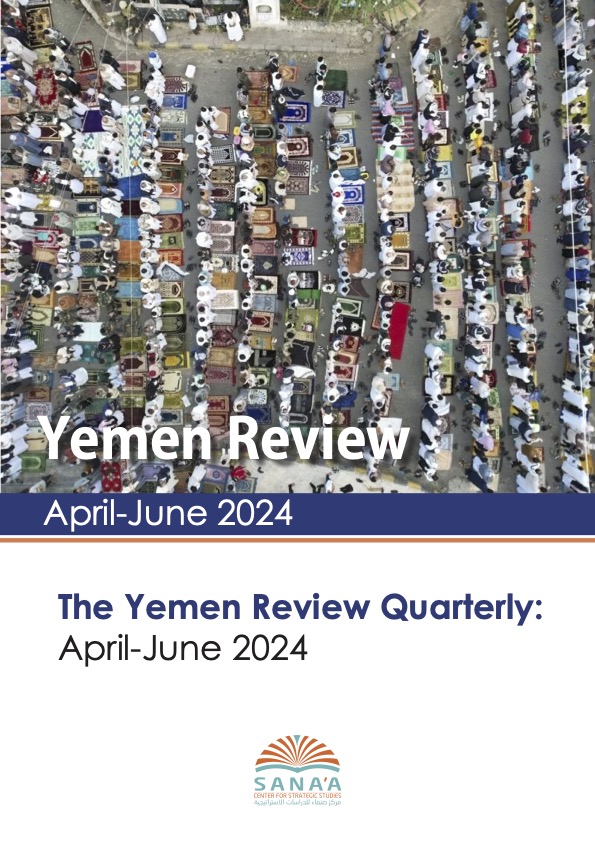Executive Summary
Houthis Round Up NGO Employees
Houthi intelligence arrested dozens of local and international aid workers and UN and non-government organization (NGO) staff in early June, alleging they were part of a US-Israeli conspiracy to undermine Yemeni society. The detainees were paraded on television and forced to give scripted confessions. The Houthis seem to have targeted monitoring and evaluation workers, perhaps to better control information on the economic and humanitarian situation. While the group continues to enjoy public support for its Red Sea attacks, pressure has been mounting over unpaid salaries, a deteriorating economic situation, and new banking restrictions. The detentions likely serve both to intimidate and to afford leverage vis-à-vis international institutions: a week before the arrests, 44 people were sentenced to death on similar charges of espionage.
Major Taiz Road Opens
Houthi forces announced the reopening of the main route from Sana’a into Taiz city on June 13, which had been closed since 2015. Travelers and traders had been forced to take a dangerous mountain road through the front to access the nearby Al-Hawban industrial area, adding hours to what was previously a 15-minute journey. The group also agreed to open the Al-Siteen-Bir Basha route north of the city. In May, the government and the Houthis reopened roads connecting Marib city to Sana’a and Al-Bayda. Road reopenings were a source of repeated dispute during truce talks in 2022. Houthi acquiescence was reportedly secured via Omani pressure but may also relate to the deteriorating economic situation. Taiz security forces have already arrested alleged Houthi spies, and there are suspicions that the group could use the routes to smuggle much-needed hard currency.
Government Appoints New FM
The government appointed Shaya al-Zindani as its new foreign minister in late March. Al-Zindani was formerly the ambassador to Saudi Arabia and has some forty years of experience in the diplomatic service. The post became vacant following the appointment of former FM Ahmed Awad bin Mubarak as prime minister. Al-Zindani’s appointment proceeded over the apparent objection of some members of the divided Presidential Leadership Council (PLC). The PLC has been under pressure due to falling revenues, high inflation, and electricity shortages. The government remains wholly reliant on Saudi financial and political support.
Houthis Accelerate Red Sea Attacks
After quieting down for much of April, the Houthis have accelerated the pace of their attacks on Red Sea shipping. In early May, the group announced a “fourth phase” of its campaign, which it declared would expand into the Mediterranean and Indian Ocean. While its claimed attacks far exceed those reported by shipping lines or independent observers, confirmed actions rose sharply in June. The Houthis say they are now working in concert with the Iranian-linked Islamic Resistance in Iraq, and reports suggest they are now benefiting from weapons smuggled through Eritrean and Sudanese ports. While it remains unclear if the Houthi possess the means to accurately target vessels in the Mediterranean, the rise in strikes comes as questions are being raised about the cost-effectiveness and sustainability of the US, British, and EU response.
Fighting Escalates in Lahj
Fighting between Houthi forces and the government and STC-aligned soldiers has escalated on multiple frontlines in Lahj governorate, resulting in hundreds of casualties over the past three months. Much of the action has taken place along the Karesh front and in nearby areas. Both sides have sent reinforcements, and May saw the first major engagements between Saudi-trained Nation’s Shield forces and Houthi fighters. Other frontlines in Hudaydah, Taiz, Marib, Al-Bayda, and Al-Dhalea have also seen regular action. At present, the frontlines appear stable, though the government seems particularly concerned that the Houthis could renew their offensive against the oil and gas fields outside Marib city. PLC chief Rashad al-Alimi visited the governorate in late April to meet with local leaders and inspect troops.
Central Bank Crisis Deepens
Yemen’s already fractured financial system has been imperiled by regulatory competition between its rival central banks in a high-stakes power struggle for control of monetary policy and cash flows. The contest has taken many forms, but escalation began in earnest with the government-aligned Central Bank of Yemen in Aden (CBY-Aden) announcing that it would launch a unified money transfer system to help it track and control payments but also to assert greater control over cash flows into Houthi territory. The Houthi-aligned central bank (CBY-Sana’a) raised the stakes when it announced that it would issue its own coinage, further cementing the bifurcation of the Yemeni rial.
The CBY-Aden has since dramatically escalated the contest, leveraging its international recognition to put pressure on the Houthis, who are suffering from a liquidity crisis due to sanctions and the physical degradation of older bank notes. The central bank has demanded that all Yemeni banks remove their headquarters to Aden so that they can be better monitored and announced a deadline for all old rial banknotes to be exchanged for new ones. It has also attempted to impose further controls on local and international money transfer networks. The CBY-Aden has already suspended several banks for non-compliance.
This issue of the Yemen Review was prepared by (in alphabetical order): Elham Babukair, Ryan Bailey, William Clough, Casey Coombs, Yasmeen Al-Eryani, Tafweek Al-Ganad, Hamza Al-Hammadi, Andrew Hammond, Waleed Al-Hariri, Abdulghani Al-Iryani, Yazeed Al-Jeddawy, Maged Al-Madhaji, Amal El-Mahdi, Ghaidaa Al-Rashidy, Osamah Al-Rawhani, Miriam Saleh, Maysaa Shuja Al-Deen, Lara Uhlenhaut, Ned Whalley, and Wadhah Al-Awlaqi.

 اقرأ المحتوى باللغة العربية
اقرأ المحتوى باللغة العربية










